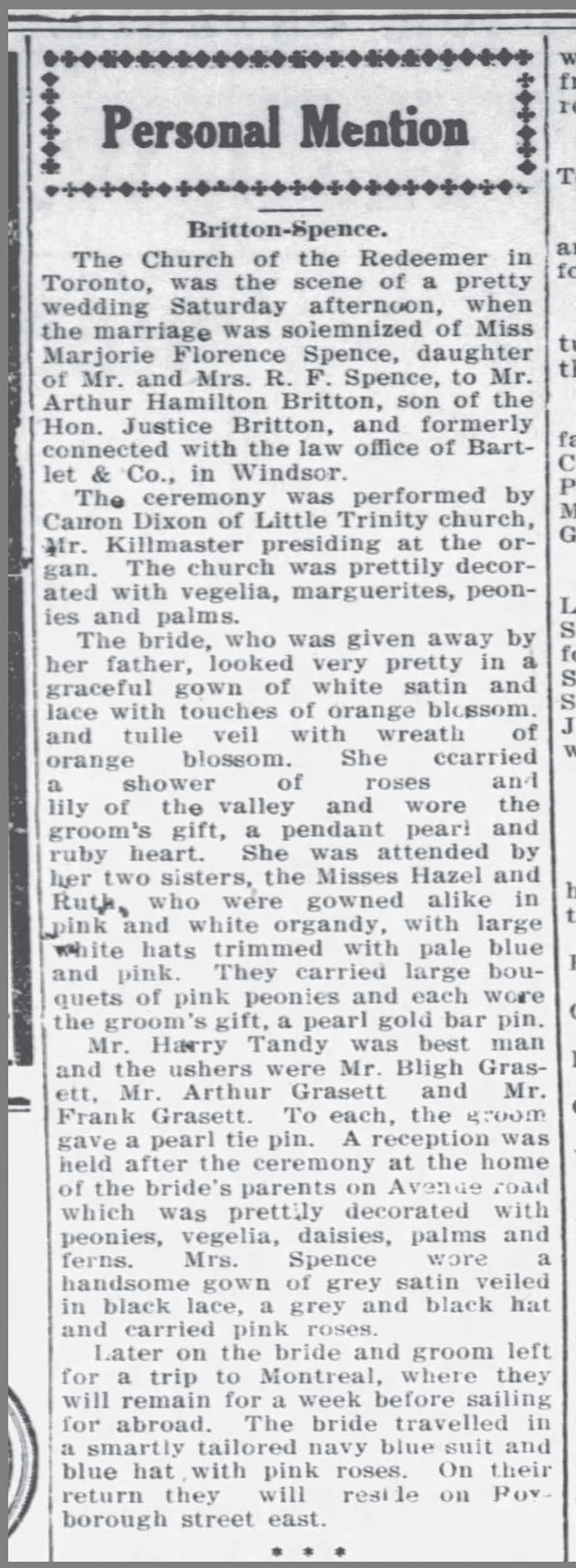
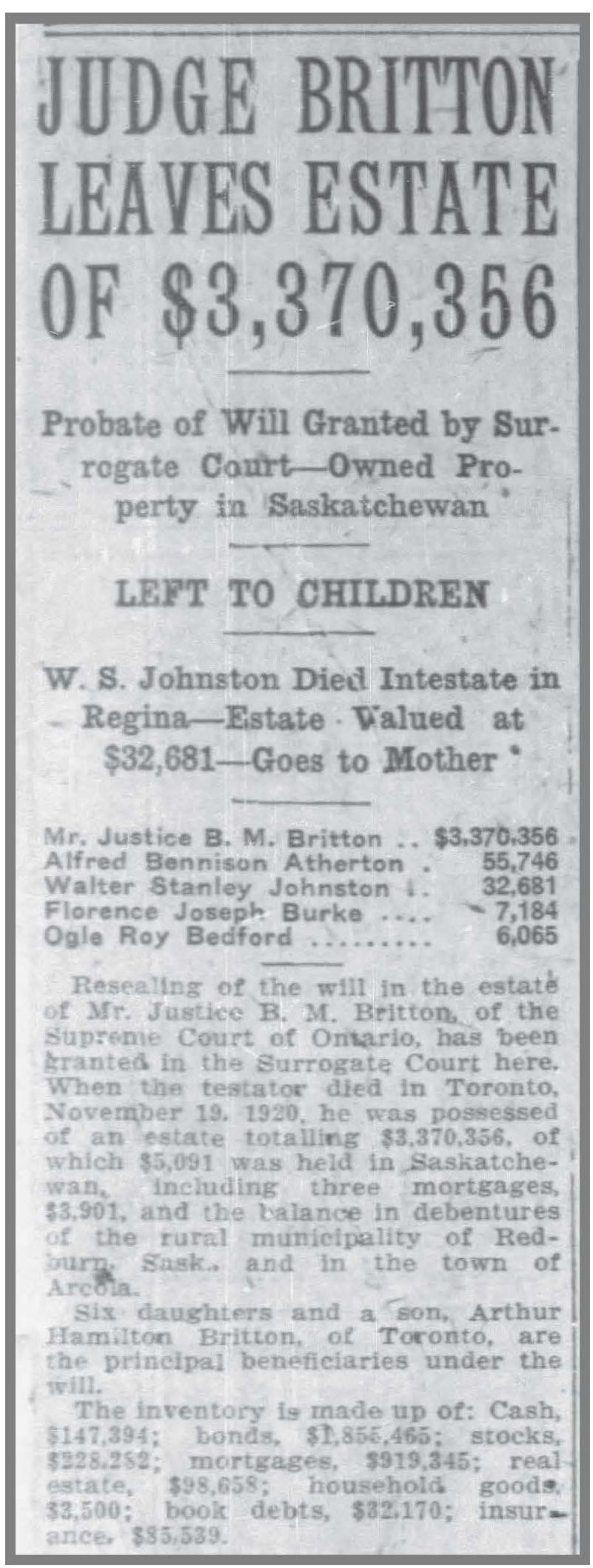

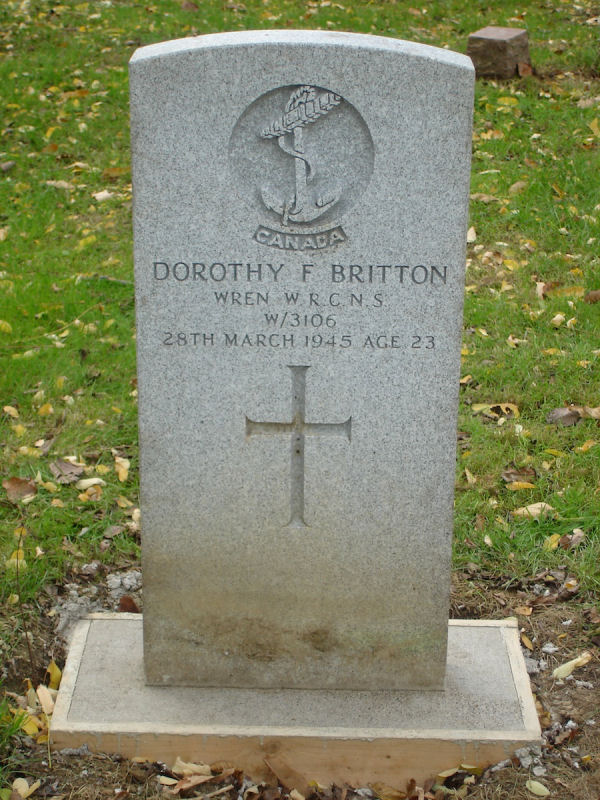
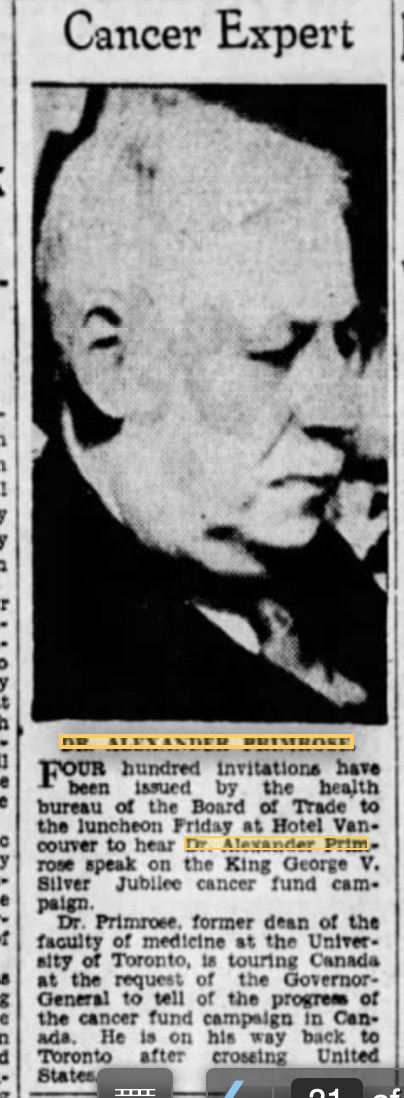
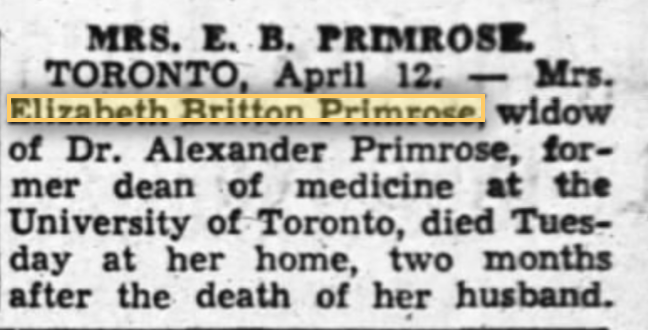
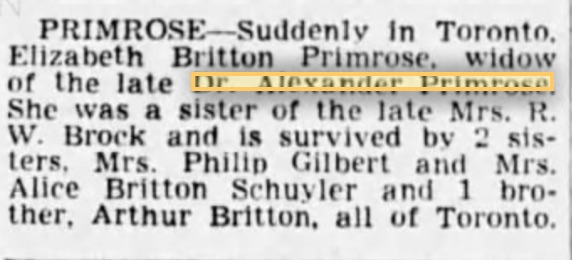
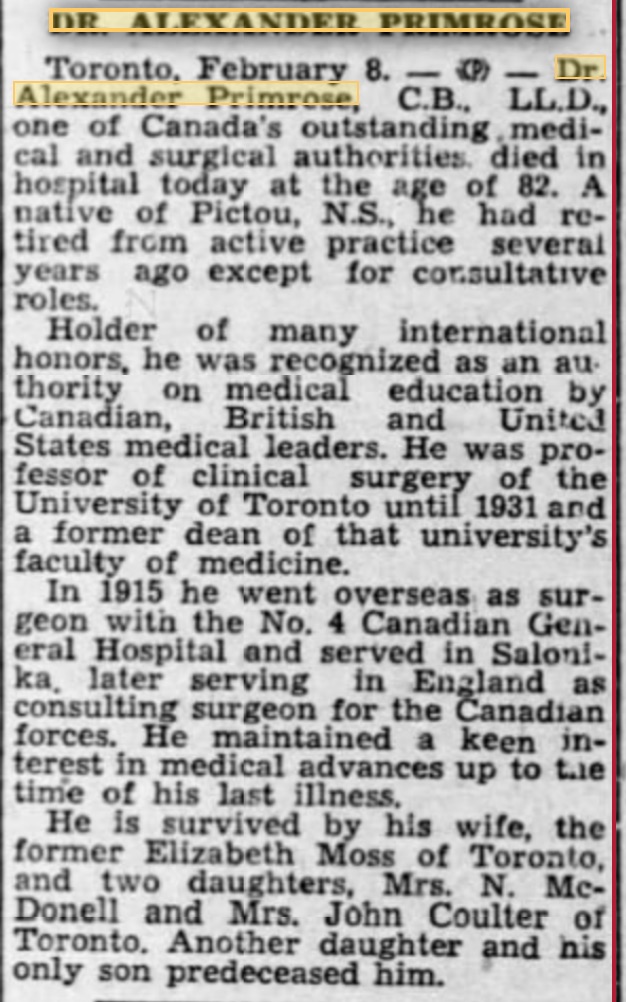

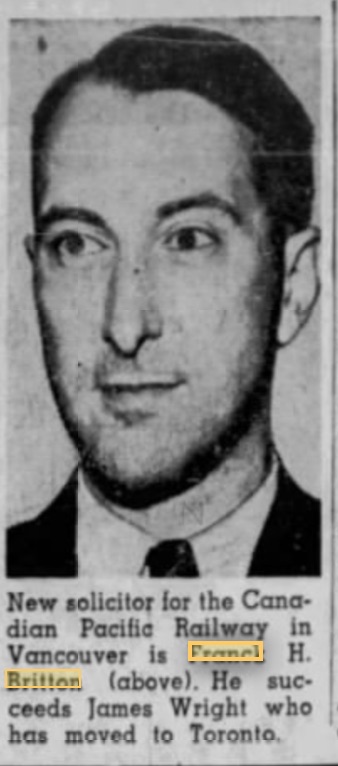

July 13, 1920 - March 28, 1945











Dorothy Florence Britton was born on July 13, 1920, daughter of Arthur Hamilton Britton, lawyer, and his wife Marjorie Florence (nee Spence) Britton of 59 Teddington Park, Toronto. She had two brothers: Franck, a captain in the Canadian Army, and Donald, plus one sister: Amy. Her paternal grandfather was a judge, with one uncle a well known doctor, specializing in cancer. The family, of English and Scottish background, attended the Church of England.
Dorothy attended a private high school and then attended two years of university. "Likes mathematics and did well in them. Reads and writes a little in German and French. Typing speed 40 wpm, shorthand 100 wpm." She started working as an office clerk and stenographer for the Canadian Publishing War Finance Committee, but did not take a full course. After the war, Dorothy hoped to train as a nurse.
Dorothy applied to enlist with the Royal Canadian Navy as a Wren in April 1943 in Toronto. It appears she did not start her duties until March 3, 1944. She stood 5' 6 1/2" tall, had dark brown hair, and blue eyes. She liked to read murder magazines and books and favourite author was Perry Mason. "Small, dark hair, blue eyes, quite nicely dressed, clear skin and pretty looking." Suitable for stenographer. "Speech: well-educated. Capability: fair. Reliability: very good. Applicant is a very nice girl, very friendly, rather quiet and seems rather high strung. She seems so shy it is rather hard to tell whether she is intelligent or not. I think she would get rattled rather easily. She says she would not mind coming in as a stenographer. Loves gardening, swimming, riding. I think she would fit into the life very well. Was a counsellor at Camp and helped with the small children. Has done typing for the Red Cross, is doing volunteer work at the Blood Donors."
OCCUPATIONAL HISTORY: After leaving business college in February 1942, Dorothy told an interviewer: "I did Red Cross work or something, I guess -- No -- I tried a war job in radio -- hated it, loathed it -- had to sit down all day and poke wires into things. I stood it for about a month or so." After a short time back in business college, the college sent her to relieve a typist in a lawyer's office in the summer of 1943. Dorothy said, "I did typing and everything and liked it." She later got another job typing case reports in an infants' home. "I found the reports amusing, but not interesting." She stayed there until her enlistment. "She said, 'emphatically', that 'I don't like studying!' (Thinks she is learning central registry work slowly but says her mind often works backwards.) It seems that she has had little satisfaction from her study or work since leaving private school. It is possible that she has been expected to overreach her capacity. Simple work and a social atmosphere might be of assistance. She says she likes being in the service and would like to make good."
Wren Britton trained at HMCS Conestoga, just outside of Galt, Ontario March 30, 1944 - May 2, 1944 on General Duty. Then she was posted to HMCS Cornwallis, Deep Brook, Nova Scotia, May 3, 1944 for about a month, taking a writers' course. She was working as a stenographer in the Captain's office. She was transferred to the HMCS Unicorn, Saskatoon, Saskatchewan as a steno, June 8, 1944 to September 12, 1944; however, she was "unable to handle stenography so put on general duty: postal, filing, etc.," then returned to Toronto, posted to the HMCS York until her death on March 28, 1945.
In Saskatoon, on July 10, 1944, she was evaluated as "well-built" on her PERSONNEL SELECTION SPECIAL REPORT FORM. "Looks anywhere except at interviewer. Strokes back of neck or between her eyes while talking. Leaves sentences incompleted. Very vague in ideas and conversation. Laugh is queer, almost simple. Family composed of older sister (M.Sc -- very successful), a brother in the Army in Italy (Captain), and another brother in university. Father is retired lawyer. Mother is dominant over father, but lets the children have their own ways. Likes her father the better of the two. Seems to have had little social life since leaving private school. Her only good friends are the girls she went to school with and they are mostly successful now. Two of them are in the WRCNS in Halifax. Dislikes Saskatoon very heartily and would like to be in Halifax where her friends are. Says, 'I find it awfully hard to make friends.' Is boarding in a home where there are no other Wrens. Likes swimming and dancing, but doesn't know anyone who does those things, and does not take the initiative in doing them herself nor getting others to do them with her. RECOMMENDATION: Transfer to Wren (Gen Duty) and draft to spot where she will be able to live in barracks, preferably STADACONA. Keep her on simple, routine duties. If she is still inefficient, discharge 'unsuitable.'"
On September 12, 1944, Wren Britton was evaluated at the HMCS Cornwallis, in Nova Scotia. "Rather nervous; has impediment - speech -- average Wren." Margaret L. Kidder, Lt. WRCNS noted, "This Wren has tried very hard to do what was expected of her. She is not an experienced stenographer and will be much better at some routine clerical job. She is very 'vague' and given to daydreaming. She wants to take part in all Wren activites, but does not know how to mix with the other girls. Has been living by herself out here and consequently, has been very lonely and homesick. Should be much happier in barracks where she must naturally, and without effort on either side, mix with the other girls."
On March 12, 1945, "Patient states she was dusting her room on 2nd floor in barracks. [Holwood House, 78 Queen's Park Crescent, Toronto] She felt warm, went to open window to cool off and fell out of the window, landing on her face. Doesn't know whether she was rendered unconscious. When found, she was kneeling but did not know where she was. This state of partial amnesia lasted for about five minutes. Patient was unable to walk due to pain in right thigh. Patient states could kneel but not walk. Has had pain in her right hip since her fall. No headache or pain anywhere in her head. Patient was brought to CSH directlly from HMCS 'York'." On March 16, 1945, she was at the Neurological Clinic, Christie Street Hospital. "Patient examined when lying quietly in bed in no apparent discomfort. Her only complaint is that she cannot internally rotate her right leg. When asked to do so, she does not contract the appropriate muscles, although she makes no complaint that passive rotation of the leg causes her any pain. These muscles are not paralysed. This girl impresses me as being emotionally unstable. She giggles fatuously and screams when her plantar reflexes are tested for. SUMMARY: The history of subconjuctival haemeorrhages and epistaxis suggest possibility of some basal skull fracture. Examination does not suggest any intracerebral injury and careful x-ray studies should be taken to rule out the possibility of skull fracture. I would like to see this girl again before her discharge in order to give a final opinion as to her emotional stability and likelihood of further usefulness to the service." A. C. Crisp, MD, DPM, Neuropsychiatrist
On March 27, 1945, Wren Dorothy Britton was examined again at the Neurological Clinic at Christie Street Hospital in Toronto. "FAMILY HISTORY: Father, aged 61, said to be retired for the past 20 years, was a lawyer by trade. He apparently had an even temperament and suffered no serious illnesses. Mother, aged 54, healthy, no instability, apparently she showed an excess of anger symptoms towards the children at times. Two brothers and one sister. One older brother in army, apparently well-adjusted and healthy. Sister described as being quite clever, and always held up as an example to the patient who is five years her junior. There is one younger brother who has just completed school. The patient would not give very many details about her home life, but it was gathered that because of financial difficulties, this girl did not have the opportunities her older sister had an she was also considered more of a problem than any of the other children, and consequently requires more discipline which she considered, and still does, as quite unfair.
PERSONAL HISTORY: Born in Toronto, 1920. She denies any early neurotic symptoms such as temper tantrums or nail biting. Because of financial difficulty, she was unable to go to the school her sister had attended, and went to St. Clement's School, where she completed her senior matriculation at the age of 18. While at school, she took part in no sports, apparently was somewhat hard to manage at times and had no extra curricular activities that she could mention during this examination. The only thing she did outside of her schoolwork was take music lessons. She then went to St. Hilda’s School and took two years University in English. However, she failed her second year and repeated it, failing it for the second time. She is very vague and indecisive in her statements as to the reasoning for her feelings. She says it was a complete lack of interest in everything. She then apparently took a holiday with a group of girls and went on a cruise to England. Says that this is the only part of her life she enjoyed very much.
OCCUPATIONAL HISTORY: Consists of work for lawyers, attending business school to try and learn typing and shorthand and apparently not succeeding, doing some clerical work for a lawyer, clerical work for the Navy League, and clerical work and infant home. She was never able to adjust very well to any of these positions. She joined the Navy in March 1944, liked the first part of her navy training but for the past while, she has been very dissatisfied with it because she states she does not like the discipline that is necessary.
MENTAL STATUS: she has no gross psychiatric disorders such as hallucinations or delusions...Her stream of thought is very retarded and it is very difficult to get an answer from her concerning most of the questions. She has no obsessions or compulsions. She apparently has a disturbance of her ideation of content, which consists of a lot of misgivings about her having been treated badly at home, at school, and in the Navy, and also she has considerable self guilt over an affair she had with a man at the age of 21. Her ego shows a lack of insight and a lot of self-deprecation and projection. Her intelligence is considered normal. Emotionally she shows no change to any sort of stimulation which normally should show happiness or sadness or in fact there is almost a dissociation of emotion. Her expression shows a lack of emotion, her speech is only a few words, and apparently thinks a lot before she says anything. Her motivation is not considered good.
SUMMARY: 24-year-old female who all her life is shown many introverted tendencies and at times has expressed the idea of suicide, but who denies that the incident that caused her to come to this hospital was premeditated although she will not deny that it was not premeditated. At present her emotions show a schizoid nature. DIAGNOSIS: Emotional instability RECOMMENDATIONS: That she should be transferred to Dr. Baillie’s service as it is felt that she is in need of some psychiatric treatment before disposal." A.J.M. Davies, Cpt. Neuropsychiatrist
April 2, 1945: "This girl was seen briefly on March 28 at the request of Capt. Davies. As she entered the room it was noticed that she was rather dilapidated and untidy in appearance and seemed somewhat foolish in manner. It was difficult to establish a significant interview situation with her and she was extremely vague and evasive in her answers. She admitted that her fall out of the window was deliberate but gave as the reason for the statement that she hoped to be able to avoid some work that had accumulated and was rather dogmatic in her statement that at no time did she consider the fall to cause her death. The details of her background have been covered by Capt. Davies's report and I’ve only to add that she had apparently considerable hostility to the mother and was closer to her father. There seemed to be a definite dislocation as far as her general mental processes are concerned, most particularly marked in the spheres of attention and effect. She seems quite gay and as previously remarked almost silly and foolish. Because of this and because moreover she had asked to have her appointment advanced from 230 to 130 so that she could go out for a walk, it was not felt by this examiner that she was suicidal, although in view of her previous accident, this certainly should have been considered. This girl committed suicide some 2 ½ hours hours after being seen, by cutting her throat with it is reported a razor blade. The body was identified in the morgue and later an interview was affected with the father. He, though greatly disturbed, was extremely realistic about the situation and admitted that there was something strange about the girl, causing considerable worry before. He felt that if she were doomed to become a malignant mental case, it was better despite the aggressiveness of the situation that she take her own life or perhaps more correctly that she did not continue to live. In my opinion, this girl was schizophrenic, malignant mental illness wasn’t secured by a superficial appearance of seeming happiness and indifference. She was seen by three separate psychiatrists and that no time did she appeal to any of them as being suicidal although unfortunately the period of observation under psychiatric surveillance was only two days. Her suicide is undoubtedly in my opinion, an extremely impulsive act which was completely unpredictable and probably from a long-range viewpoint unavoidable." W. I. Breslin, Major, Neuropsychiatrist
A letter dated April 2, 1945, addressed to Dorothy's father, stated, "...It is with deep regret that I must write to you regarding the very sudden death of your daughter...who died approximately 1530 on Wednesday, March 28, 1945. You are doubtless aware that your daughter was under observation at Christie Street Hospital immediately prior to her death and appeared to be making favourable progress up to that time. However, despite the care and attention that was directed towards her, she apparently did not respond to the treatment...should you desire a headstone to be supplied from public funds, I would advise you to write to the Secretery General...Your daughter, Dorothy Florence Britton, was indeed well-liked by the many Wrens with whom she worked and lived. I trust it will give you a reasonable degree of personal pride and satisfaction in the knowledge that your daughter fulfilled the purpose for which she was engaged in the Women's Royal Canadian Naval Service. Her services were indeed expedient and may I state more honourable. I, therefore, extend to you my personal sincere sympathy and heartfelt condolences at this time of sorrow and this sympathy is also extended from all the Officers and Ship's Company of His Majesty's Canadian Ship 'YORK'. Yours sincerely, Lt/Com L. W. Scott, RCNVR for A/Com G. F. McCrimmon, RCNVR, absent on duty."
The Findings of the Board of Inquiry, dated June 25, 1945: "The evidence submitted to the Board has been perused by the individual members of the Board who concur with the Coroner that Wren Dorothy Britton, WRCNS, W-3106, came to her death as a result of suicide from hemorrhage caused by cutting her throat with a razor blade while mentally deranged, death occurring on March 28, 1945, in Hillcrest Park, a public place. The evidence admitted established the fact that at the time of her death, Wren Dorothy Britton was on short leave from Christie Street Hospital where she was under treatment as a result of a fall sustained at Holwood House on March 12, 1945. It is the opinion of the Board, after careful consideration of all evidence submitted, that the mental condition of Wren Dorothy Britton was not caused nor aggravated by her association with the Naval Service as such." Lt. J. E. Colby, A/Com R. W. Knox-Leet, Surgeon Lt-Com F. G. McHattie
In her estate form, Mr. Britton noted: "The deceased in her lifetime was entitled, and her estate entitled, to one-ninth of the residuary estate of her aunt, Elizabeth Britton Primrose, deceased, who died on April 11, 1944, having made her last will and testament, by which she appointed my son, Captain Franck Britton, and National Trust Company Limited, her executors and trustees. The value of the said one-ninth share is estimated at $19,338.21." This would be just over $279,000 in 2020 dollars.
In Dorothy Florence Britton's Inventory of Personal Effects: many clothes, toiletries, make-up, two New Testaments, two dolls, and jewellery. Sent to her parents via Registered Mail as they would not be at their home in Toronto, but at their summer cottage in the Muskoka area: 2 pens, 1 straight, 1 diary, 1 picture holder, 1 pencil, 4 keys, 1 identification bracelet, 1 silver bracelet, 1 necklace and 1 broach. Some of her clothes that had been recovered were burned.
Mrs. Marjorie Britton, Dorothy's mother wrote a letter to the Officer in Charge of the Graves Committee: "My daughter, Dorothy Britton, Wren 3106 died in March 28, 1945. Would you mind seeing if the arrangements have been made for her stone? I know it takes a long time but would be grateful to know things had been attended to in the way of ordering a stone for her." Wren Dorothy Florence Britton was buried in York Mills (St. John's) Churchyard.
LINKS: